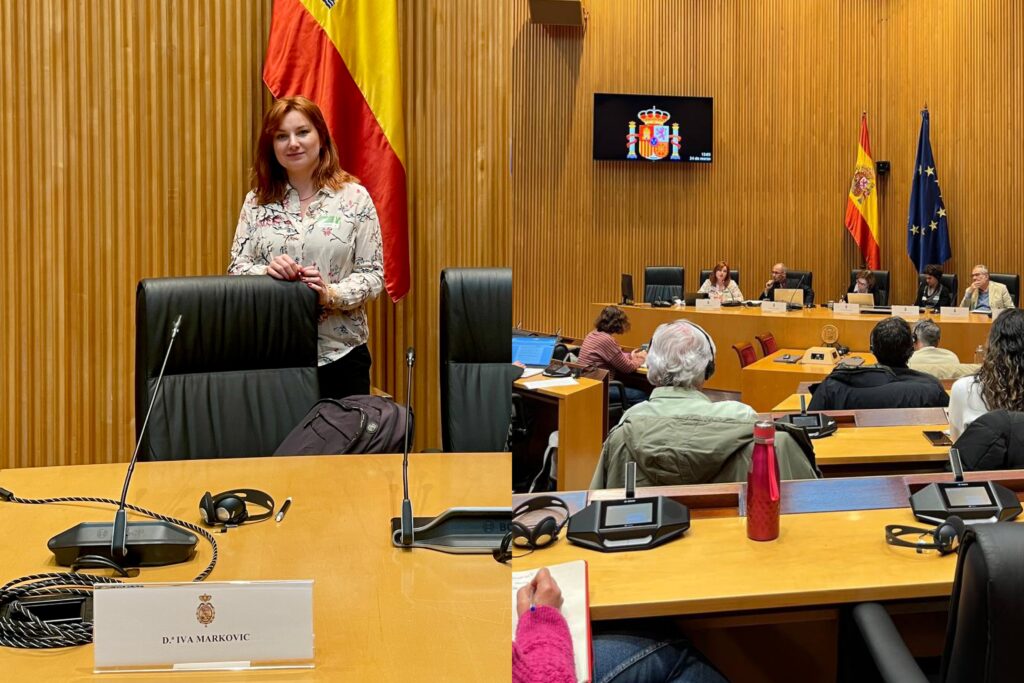On the occasion of World Water Day, the Network for Public Access to Water (Red Agua Pública – RAP) organized the event Public Policy and Water Justice in the Light of Financialization of Water , held at the Congress of Spain. Prominent experts spoke at the meeting, including Pedro Aroha, UN Special Rapporteur on Human Rights to Water and Sanitation, our own Iva Marković from the People’s Movement for Water, Emanuel Lobina from the University of Greenwich and Erica González Breeze from RAP.
The goal of the event was to shed light on the connections between water and the economy, especially the processes of privatization and financialization, which threaten universal access to water as a human right. The speakers emphasized the necessity of regulation in order to prevent the commercialization of water resources and preserve their availability to all citizens.

Iva Marković, representing the Forum of Peoples for Water, of which we are a member, participated in the Conference in New York in 2023. She highlighted the difficulties that exist in the UN system for the effective participation of civil society. She explained the importance of the Manifesto for water justice, which was signed by more than 500 organizations, including twenty from Serbia.
On that occasion, RAP once again emphasized the request for the adoption of the law on the minimum amount of water necessary for life, which would ensure free basic access to water and prohibit the exclusion of households due to economic vulnerability. Also, the organization demands the implementation of Royal Decree 3/2023 , which guarantees the right to clean water for all citizens, but whose implementation is missing.
Along with the criticism of privatization and concession fees that enable the exploitation of water resources for commercial purposes, RAP reiterated the demands for the reform of public policies in the water sector, with the aim of ensuring environmental sustainability and social justice. It was pointed out that discussions on the management of water resources should be institutionalized within the UN, in order to reduce the influence of private lobbies.
The conference ended with an appeal for the active involvement of citizens and civil society organizations in decision-making processes regarding water as a basic human right and not as a market commodity.
